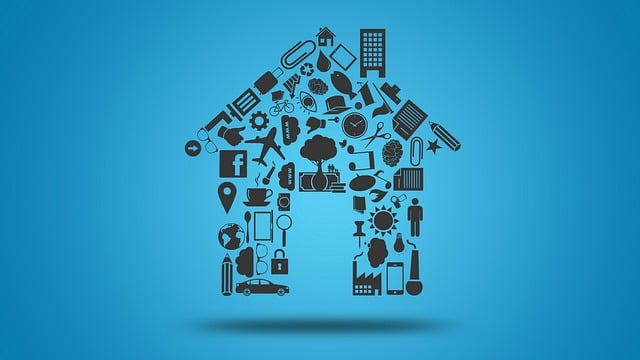Master Homeowner Debt Consolidation Loans: Repay Efficiently

Homeowner debt consolidation loans use property equity to combine multiple high-interest debts into…….
Welcome to an extensive exploration of a powerful financial tool that has been reshaping the lives of homeowners worldwide – Homeowner Debt Consolidation Loans. This article aims to guide you through the intricacies of this concept, offering valuable insights for both those seeking debt relief and financial professionals looking to navigate this space. We will delve into its definition, global reach, economic implications, technological innovations, regulatory environment, and its potential challenges. By the end, you’ll grasp why homeowner debt consolidation loans are a significant aspect of modern finance, impacting individuals, communities, and economies alike.
Definition:
Homeowner Debt Consolidation Loans, in its essence, is a financial strategy where a homeowner takes out a new loan to pay off multiple existing debts. These debts could include credit card balances, personal loans, outstanding mortgages, or any other form of unsecured debt. The primary goal is to simplify the repayment process by combining these diverse debts into one single loan with potentially lower interest rates and more manageable terms.
Core Components:
Historical Context:
The concept of debt consolidation has evolved over centuries, but it gained prominence in the late 20th century with the rise of consumer credit. As more people took on multiple debts for various purposes, such as education, home improvements, or emergencies, the need for simplification and cost savings became evident. Traditional lenders and later, financial technology (fintech) companies, recognized this gap and started offering consolidation loans tailored to homeowners.
Significance:
Homeowner debt consolidation loans play a crucial role in:
International Reach:
Homeowner debt consolidation loans have left an indelible mark across the globe, with varying levels of adoption and regulation in different countries. The United States, Canada, the United Kingdom, Australia, and several European nations have robust markets for these loans, catering to a diverse range of borrowers.
Regional Trends:
Global Market Dynamics:
The global homeowner debt consolidation market is characterized by:
Market Dynamics:
The homeowner debt consolidation market is an integral part of the broader consumer lending sector, influenced by economic conditions and monetary policies. Lenders closely monitor interest rate trends, inflation, and employment rates when setting terms for these loans.
Investment Patterns:
Economic Impact:
Homeowner debt consolidation loans have both direct and indirect economic effects:
Digital Lending Platforms:
The rise of digital banking has been a game-changer for homeowner debt consolidation loans. Online lenders offer:
Blockchain and Smart Contracts:
Emerging technologies like blockchain and smart contracts have the potential to disrupt the consolidation loan industry:
Artificial Intelligence (AI):
AI plays a pivotal role in:
Global Regulatory Frameworks:
Homeowner debt consolidation loans are subject to various laws and regulations worldwide, designed to protect borrowers and maintain financial stability:
Key Considerations:
Main Issues Faced:
Strategies for Improvement:
Case Study 1: Sarah’s Mortgage Consolidation
Sarah, a young professional living in New York City, had accumulated multiple debts due to unexpected medical expenses and student loans. She decided on a homeowner debt consolidation loan to simplify her finances. Through careful research, she found a lender offering a competitive fixed-rate loan with terms tailored to her needs. The result? A significant reduction in monthly payments, allowing Sarah to manage her finances better and invest in her future.
Case Study 2: John’s Cross-Border Consolidation
John, a British expat living in Canada, sought debt relief through a cross-border consolidation loan. He leveraged his strong credit history and found a lender offering favorable terms despite his international location. This strategy enabled him to consolidate debts from multiple sources, improve his cash flow, and ultimately save on interest expenses.
Case Study 3: Community Development Initiative
In an underserved urban neighborhood, a community development organization partnered with local lenders to offer homeowner debt consolidation loans tailored to low-income borrowers. The initiative focused on financial education and provided personalized support. The result was improved credit scores, reduced default rates, and enhanced financial stability for participants.
Emerging Trends:
Strategic Considerations:
Homeowner debt consolidation loans have evolved into a vital tool for managing personal finances, offering much-needed relief from the burden of multiple debts. As global economic landscapes become more complex, this strategy provides individuals with a path to financial stability and improved living standards. The digital transformation, regulatory advancements, and innovative technologies further strengthen the case for consolidation loans as a preferred solution for homeowners worldwide.
Q: How do I know if a debt consolidation loan is right for me?
A: Debt consolidation is suitable when you have multiple debts with varying interest rates and terms. If it simplifies your repayments, saves on interest, and improves your credit score, it’s likely a good option.
Q: Can I consolidate all types of debts?
A: While homeowner consolidation loans are primarily for mortgage and secured debts, some lenders offer personal loan consolidation options as well. Credit card debt consolidation is also possible but may require alternative approaches.
Q: What if I have poor credit? Can I still get a consolidation loan?
A: Poor credit can make it challenging to secure favorable loan terms. However, with improved credit management and a solid repayment plan, you can increase your chances of approval. Some lenders specialize in assisting borrowers with substandard credit.
Q: How does consolidating debts impact my tax obligations?
A: Generally, consolidating debts does not directly affect your taxable income. Tax implications depend on the specific loan terms and how you structure repayments. It’s advisable to consult a tax professional for personalized advice.
Q: Are there any hidden fees associated with consolidation loans?
A: Reputable lenders are transparent about fees, including origination charges, processing fees, and early repayment penalties (if applicable). Always review the loan agreement carefully to understand all costs involved.

Homeowner debt consolidation loans use property equity to combine multiple high-interest debts into…….